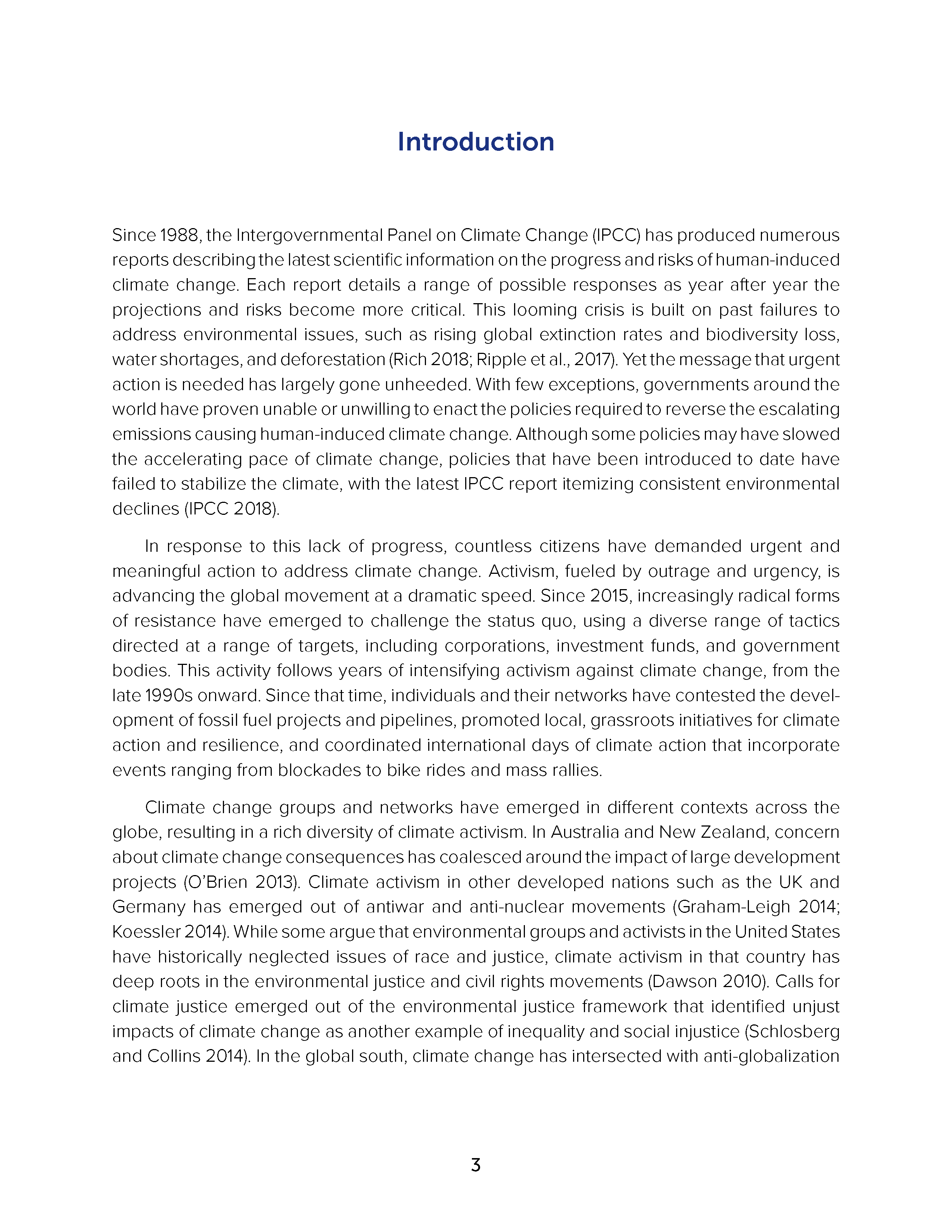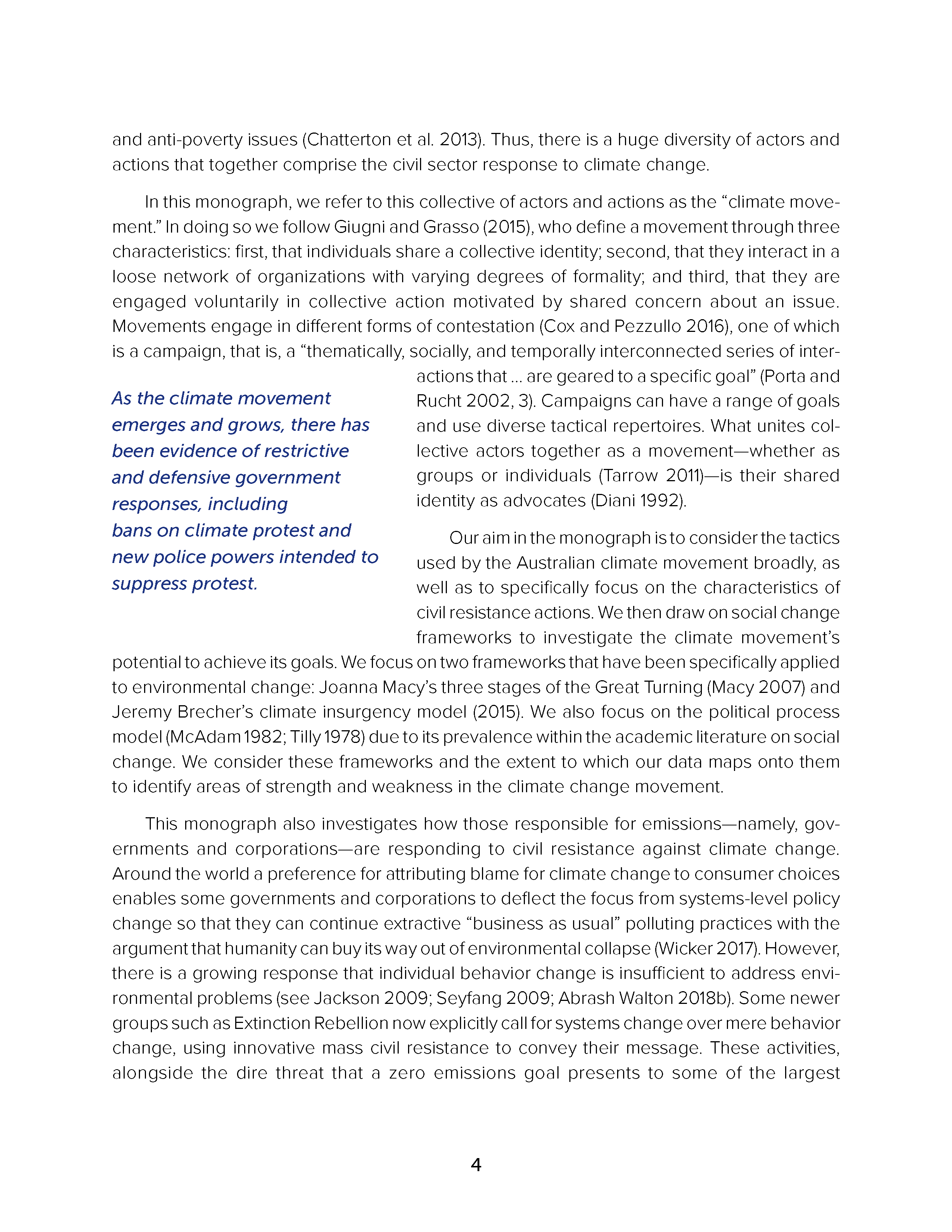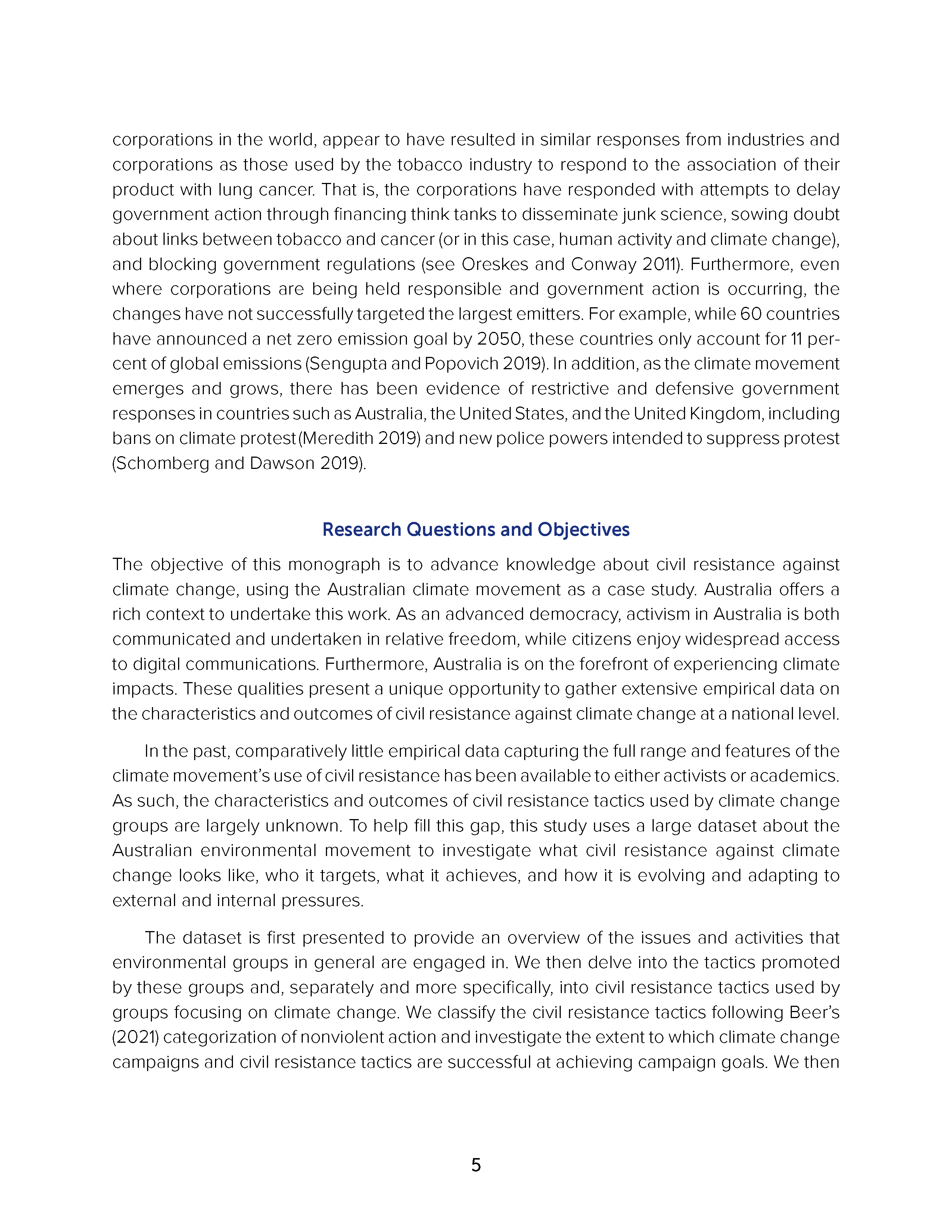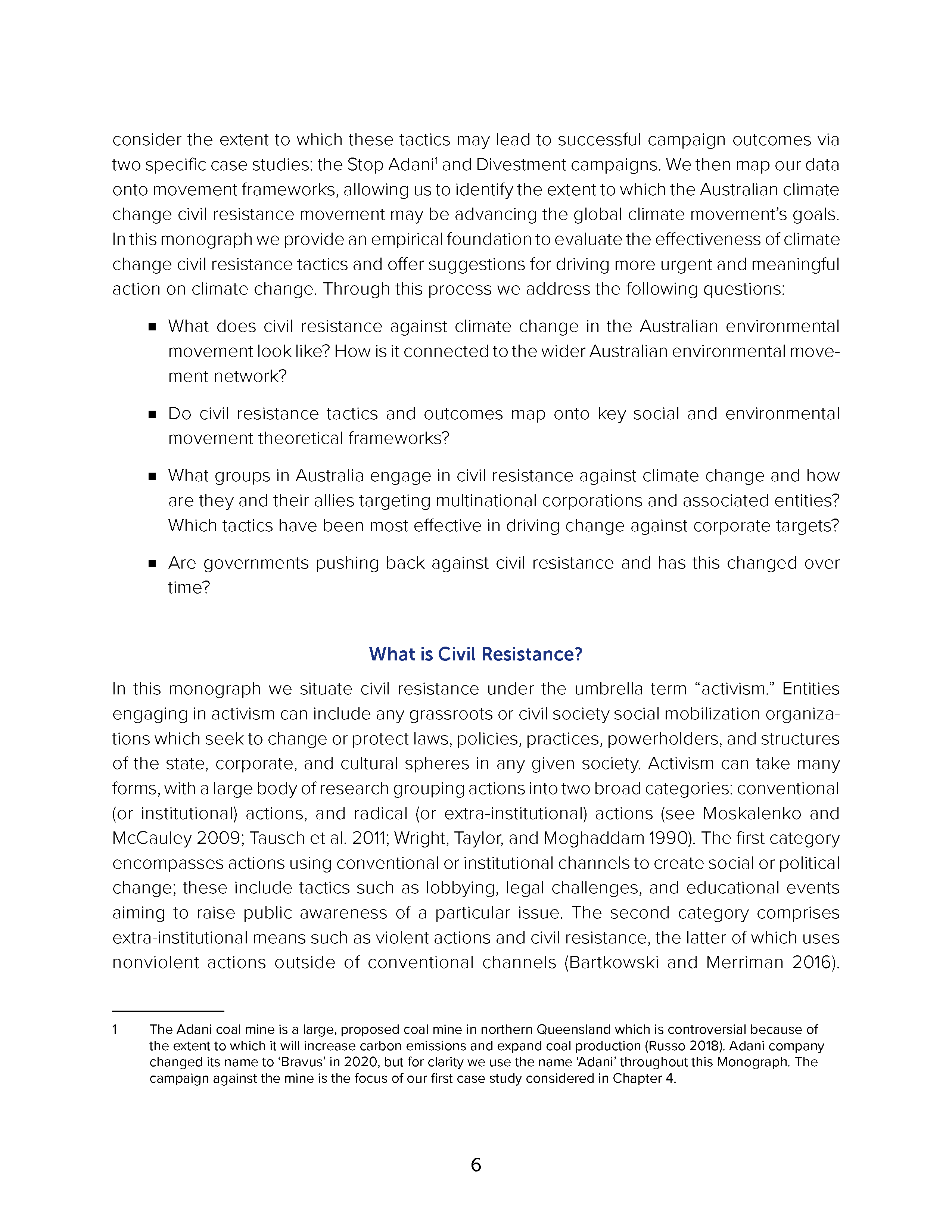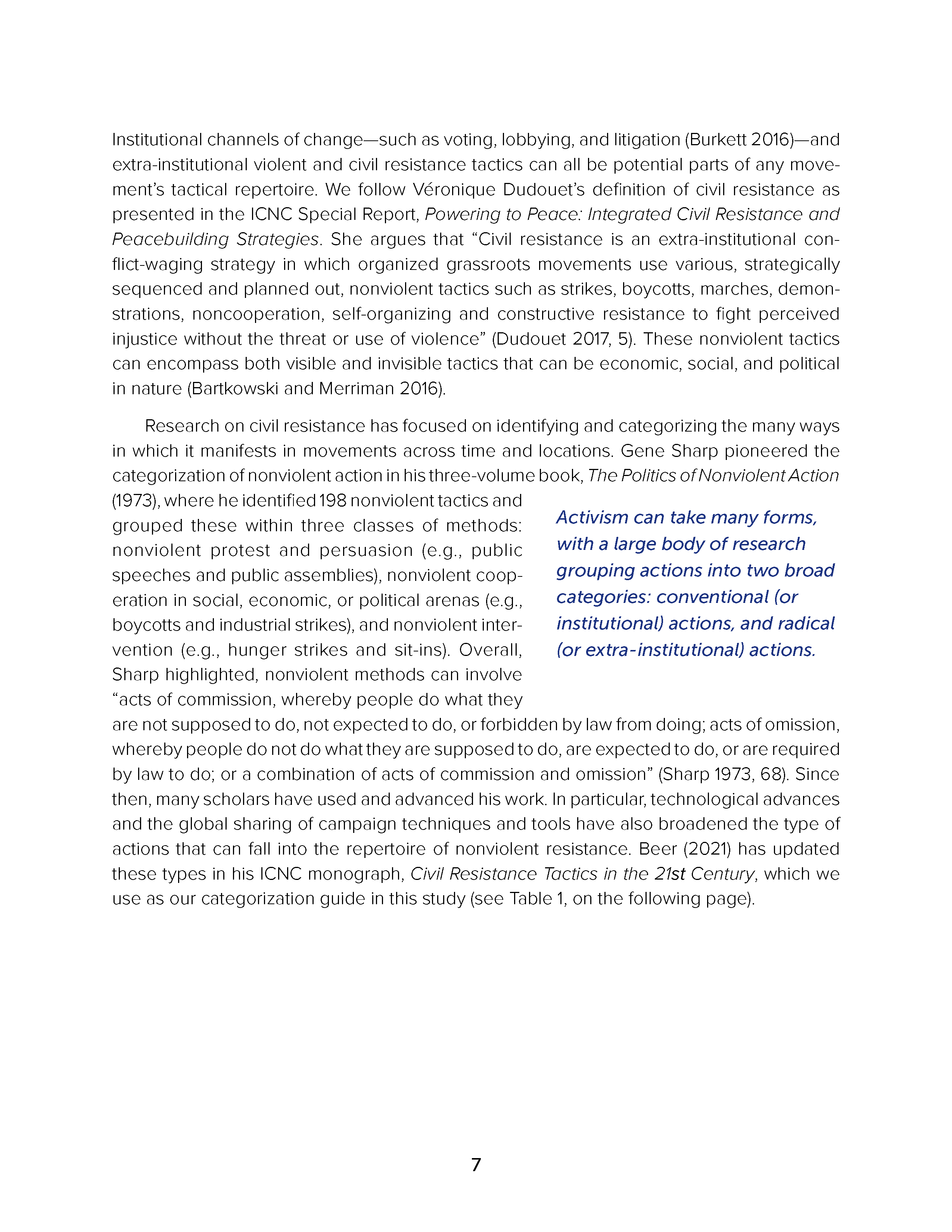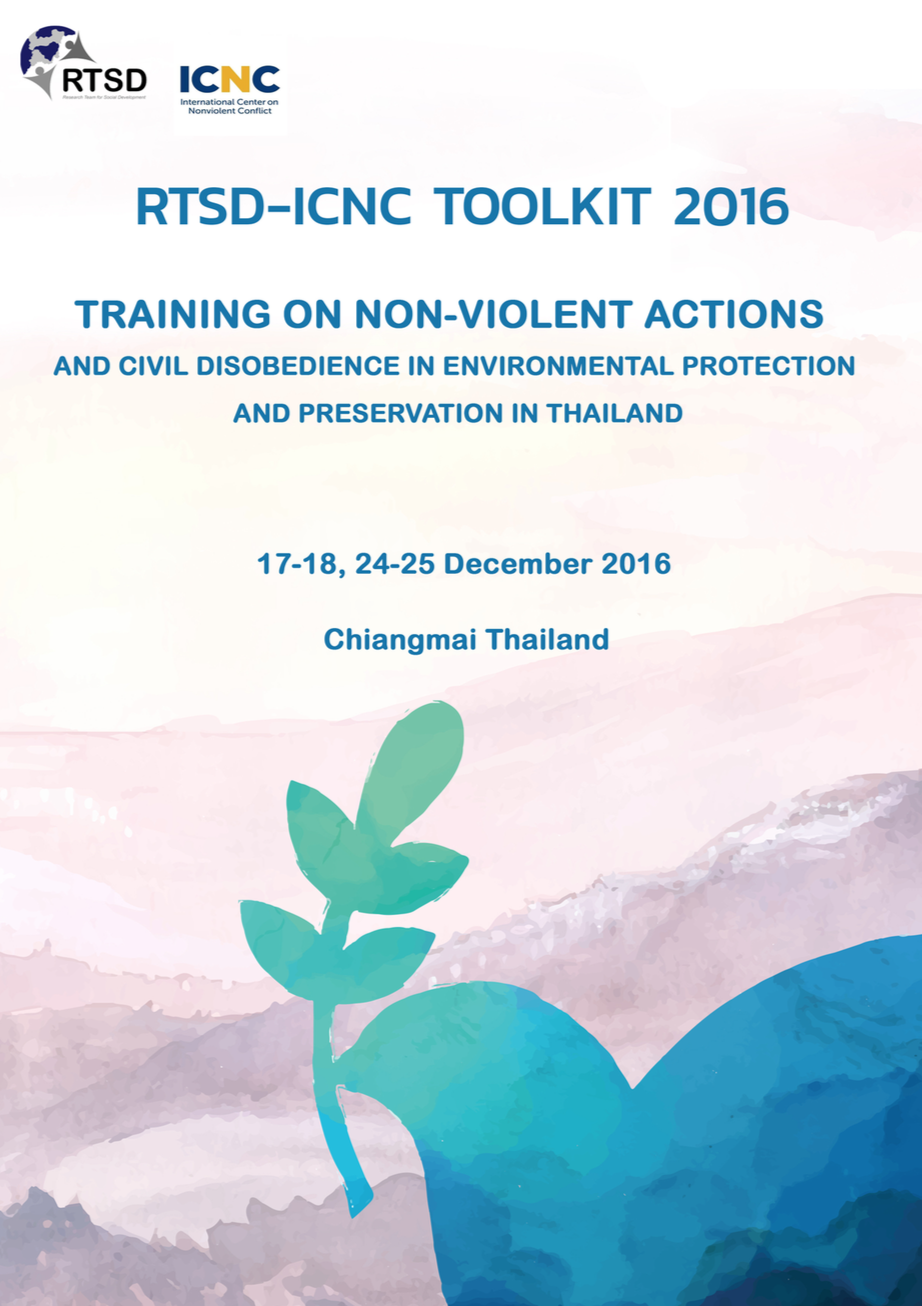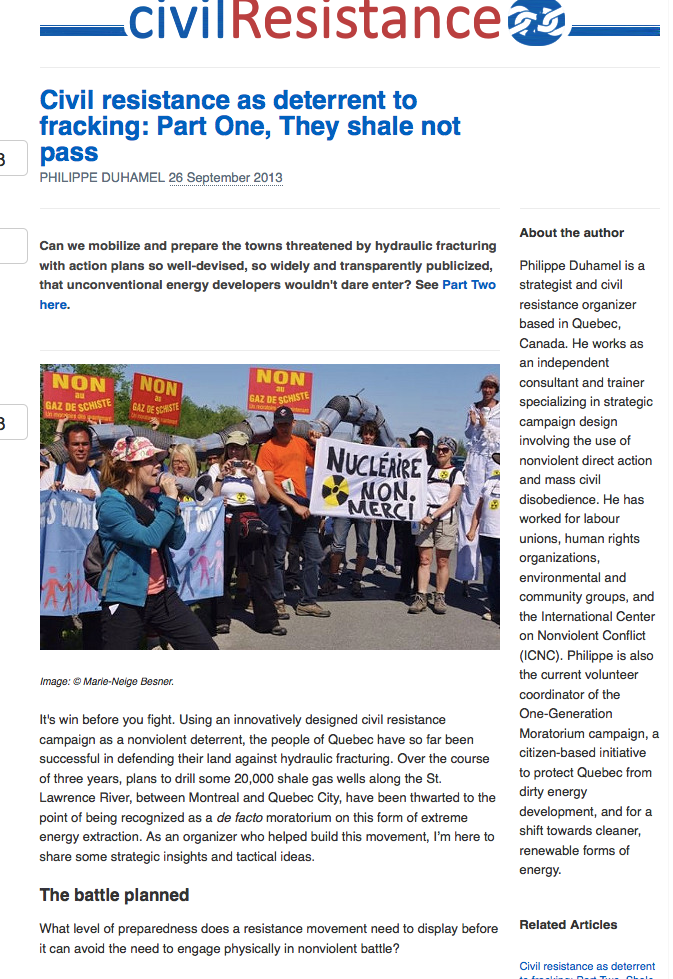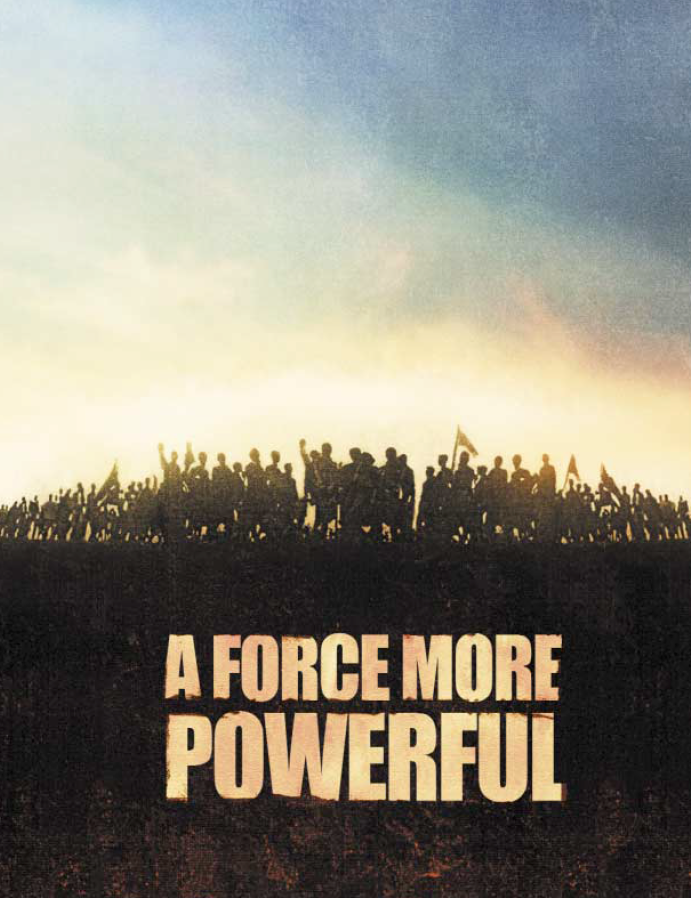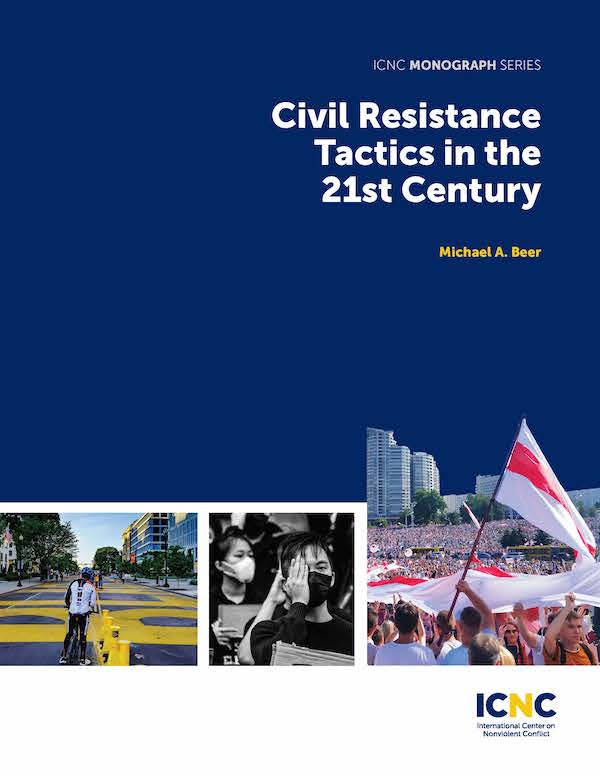Civil Resistance Against Climate Change
Our rapidly changing climate poses one of the greatest threats to humanity. As we veer closer to climate tipping points with the potential for irreversible damage to major ecosystems, people around the world are demanding urgent action. The recent rise of groups focused on climate change such as Extinction Rebellion and School Strike for Climate have been presaged by over two decades of transnational climate activism engaging a diverse range of actors across the global north and south, and involving a vibrant mix of strategies and tactics. But to what extent do these activists incorporate civil resistance—that is, nonviolent, extra-institutional, conflict-waging tactics—into their tactical repertoire? Further, to the extent that civil resistance against climate change is happening, what does it look like, and to what extent is it achieving its goals?
This monograph seeks to answer these questions by presenting an empirical analysis of the Australian climate change movement. Using three movement frameworks as a theoretical foundation, it begins with an overview of the broader environmental movement before considering the types of groups engaging in civil resistance against climate change, the range of actions they undertake, and the targets they seek to influence. It then examines two campaigns directed at corporate targets—the Stop Adani anti-coal mining campaign, and the Divestment campaign—as case studies before considering the extent to which civil resistance in Australia is prompting repressive responses from the state. It offers key lessons for a range of individuals and groups, from climate activists and civil society organizations to academics and others interested in supporting nonviolent action against climate change. In doing so, it addresses major gaps in our understanding of the effectiveness of civil resistance against climate change and the potential this resistance holds to prompt urgent action.
Our analysis finds that the Australian climate change movement is capitalizing on opportunities to create change by rapidly creating a multitude of flexible, grassroots groups which collectively engage in a multiplicity of diverse tactics and campaigns. These tactics include sharing information about climate change, building localized alternative social and economic structures, and obtaining climate change action commitments from organizations, as well as sustained, targeted civil resistance. The two case studies demonstrate that waging civil resistance has achieved some success, including substantially delaying new coal mines, securing divestment commitments, and strengthening the movement at large. However, despite these successes, Australia’s response to the climate crisis remains woefully inadequate. As such, we hope this monograph prompts further analysis of civil resistance against climate change to help identify the most effective strategies for urgently addressing our global climate emergency.
ICNC Monograph Series
Published September 2021

